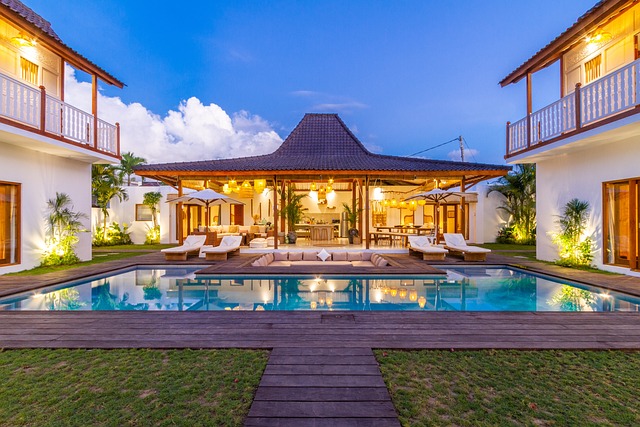Buying an Executive Condominium (EC) in Singapore presents a unique balance between affordability and modern amenities, ideal for first-time buyers or budget-conscious individuals. Developed by the Housing & Development Board (HDB), ECs offer well-designed units, convenient access to urban amenities, and guaranteed accessible pricing, making them attractive for both long-term investments and debut home purchases. Compared to private condos that prioritize exclusivity and luxury, ECs target young professionals and families seeking a cost-effective lifestyle near public transport and essential services.
When considering buying an executive condominium (EC), understanding its key differences with private condos is crucial for informed decision-making. This comprehensive guide delves into the distinct features, benefits, and drawbacks of both options, from definitions and community dynamics to financial aspects and lifestyle considerations. By exploring these factors, prospective buyers can navigate the market effectively and make a well-suited choice, especially when considering the purchase of an EC.
- Definition and Overview
- – What is an Executive Condominium (EC)?
- – Characteristics and benefits of ECs.
- – Who are they suitable for?
Definition and Overview

When considering your housing options, understanding the distinct characteristics of an EC (Executive Condominium) versus a private condo is crucial, especially for those looking to buy an Executive Condominium. An Executive Condo falls under a specific category in Singapore’s property market, offering a unique blend of benefits and limitations compared to regular private condos. These buildings are primarily targeted at first-time home buyers or those seeking more affordable housing options without compromising on amenities and facilities.
In contrast to private condos, ECs are subject to government regulations and policies, ensuring they maintain specific standards and price caps. This governmental oversight is designed to keep the cost of living accessible for Singaporeans. While this may limit certain customization options, it also guarantees that buyers can secure a property within their budget, making it an attractive choice for those navigating the real estate market, particularly when considering long-term investment or as a first home purchase.
– What is an Executive Condominium (EC)?

An Executive Condominium (EC) is a unique property option in Singapore’s real estate market, designed to offer affordable housing for citizens and permanent residents. These condens are primarily targeted at first-time homeowners and young professionals who seek a balance between convenient living and more accessible pricing compared to private condos. An EC is essentially a government-built and owned condominium, developed under the Housing & Development Board (HDB).
When considering buying an Executive Condominium, buyers can expect well-designed, modern units with various amenities within the complex. These homes are known for their quality construction, efficient layout, and proximity to essential services. ECs often feature a range of facilities such as gyms, pools, playgrounds, and community hubs, ensuring residents have access to comfortable and convenient surroundings without breaking the bank.
– Characteristics and benefits of ECs.

Executive Condominiums (ECs) offer a unique housing option, especially appealing to those looking for a blend of convenience and affordability when buying a property in Singapore. These modern apartments are typically developed by government agencies or private developers on state land and adhere to strict size guidelines set by the Housing & Development Board (HDB). One significant advantage of ECs is their accessibility; they are often located near urban centers, providing residents with easy access to amenities, schools, and transportation hubs. This makes them a popular choice for young professionals, couples, and families who seek a balanced lifestyle without compromising on living standards.
Additionally, ECs come with numerous benefits, including lower prices compared to private condominiums, making homeownership more attainable for many Singaporeans. They offer a range of facilities, such as well-designed interiors, security systems, and community spaces that foster a sense of belonging. The government’s involvement in EC development ensures quality construction and regular maintenance, providing buyers with peace of mind and long-term investment value. This sector is particularly attractive to those who want the advantages of public housing with the added comfort and privacy of private living.
– Who are they suitable for?

Executive Condos (ECs) and Private Condos cater to different segments of buyers, each with unique needs and preferences when it comes to homeownership. When considering a Buying An Executive Condominium, factors like affordability and location are key. ECs are often more accessible to first-time homebuyers or those on tighter budgets due to their lower prices compared to private condos. They typically offer convenient access to public transport, essential amenities, and urban conveniences, making them ideal for young professionals, couples, or families seeking a cost-effective urban lifestyle.
On the other hand, private condos appeal to buyers who prioritize exclusivity, privacy, and luxury. These properties usually command higher prices but provide a more exclusive living environment with amenities like private pools, gyms, and 24/7 security. Private condos are suitable for established individuals or families who desire a peaceful retreat within the city, offering a high quality of life and a sense of community among fellow residents.
When considering buying an executive condominium, understanding its key differences from private condos is essential. ECs offer a unique blend of affordability and government-supported amenities, making them ideal for first-time homeowners seeking a balanced lifestyle. While private condos may boast luxurious features, ECs provide access to government-subsidized housing, targeted at addressing urban housing needs. Each option has its merits, depending on individual preferences and financial considerations.
